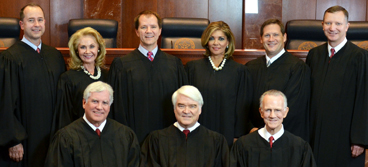© 2016 The Texas Lawbook.
By Janet Elliott
AUSTIN (June 1) – An Edinburg doctors’ hospital is not liable for a botched delivery by one of its physician partners because the doctor was not acting with authority of the partnership, the Texas Supreme Court decided Friday.
The ruling clarified a situation in which a limited partner in a doctor-owned hospital also practices at the hospital. The court said that such doctors are acting under their separate admitting privileges, not with any authority of the partnership.

Medical and business interests were relieved at the outcome. They had warned the court that an adverse ruling could jeopardize access to for-profit hospitals, which help provide acute care in underserved areas of the state.
The Women’s Hospital at Renaissance was named in a lawsuit filed by the parents of a baby who suffered nerve damage during a 2012 delivery, resulting in paralysis of one arm.
The child’s parents, Jesus Jaime and Jessica Andrade, sued Dr. Rodolfo Lozano and later added Doctors Hospital at Renaissance Ltd., which owns and operates the Women’s Hospital.
The family argued that Lozano was acting in the partnership’s ordinary business and with its authority. The hospital countered that its ordinary business was operating the hospital, not providing obstetrical services, and that it did not control Lozano’s medical judgment.
Dale Wainwright, managing partner of Bracewell’s Austin office, represented the hospital. Timothy Culberson represented the family.
Hospital Was Not Practicing Medicine
The 13th Court of Appeals last June said there was an open fact question about whether the doctor was acting within the scope of the partnership business or with its authority.
The Supreme Court reversed the Corpus Christi-based appeals court and rendered judgment for the hospital.
In a written statement, Doctors Hospital said the decision upheld the long-established bar on a hospital’s liability for the alleged negligence of a credentialed physician, notwithstanding the physician’s passive investment in the hospital.
“The Court’s ruling further solidifies the independent, albeit symbiotic, relationship of the physician and hospital, which is beneficial for all Texas hospitals,” the hospital said.
In the opinion, Justice Debra Lehrmann said that Renaissance’s business as the hospital operator does not include practicing medicine and that Lozano was not acting with the partnership’s authority in treating the patient. The court drew a distinction between the hospital’s business of providing facilities, support staff and supplies to assist doctors in providing medical care and the practice of medicine.
“The Andrades would need to show more than that Renaissance was in the business of providing these support services in order to raise any factual question on whether Renaissance was engaged in the illegal practice of medicine,” said Lehrmann.
Lerhrmann said the Andrades could show that Renaissance exerted such control over the doctor’s practice to raise a fact issue whether its ordinary business included the illegal medical practice, but had not done so in this case.
© 2016 The Texas Lawbook. Content of The Texas Lawbook is controlled and protected by specific licensing agreements with our subscribers and under federal copyright laws. Any distribution of this content without the consent of The Texas Lawbook is prohibited.
If you see any inaccuracy in any article in The Texas Lawbook, please contact us. Our goal is content that is 100% true and accurate. Thank you.
